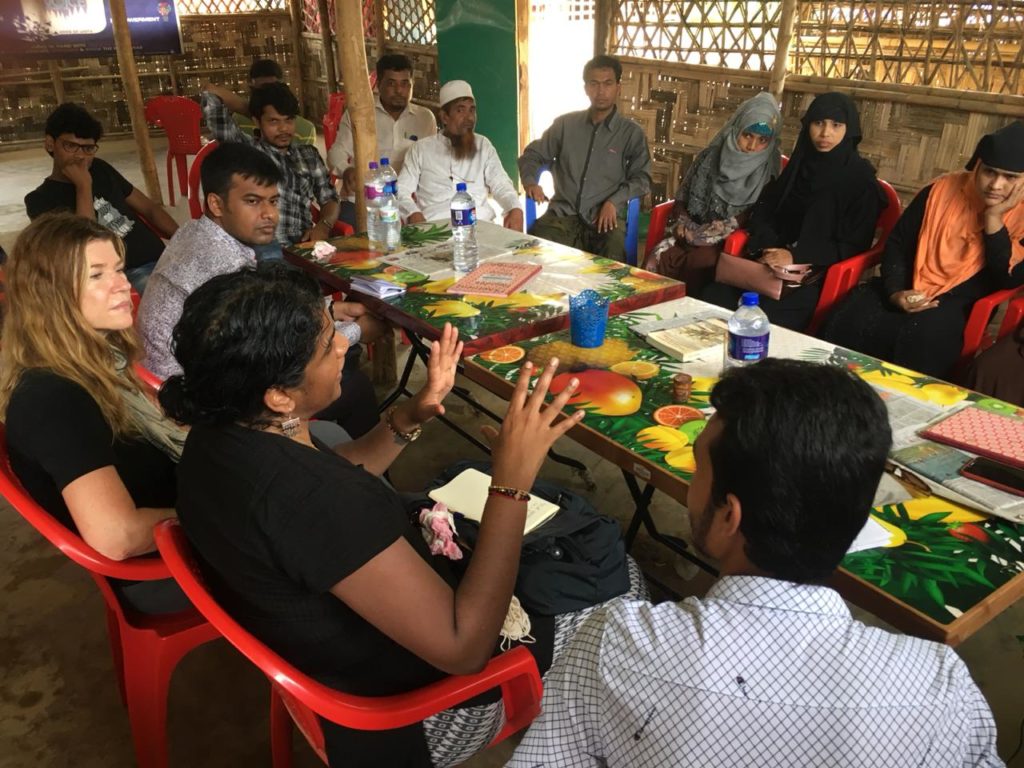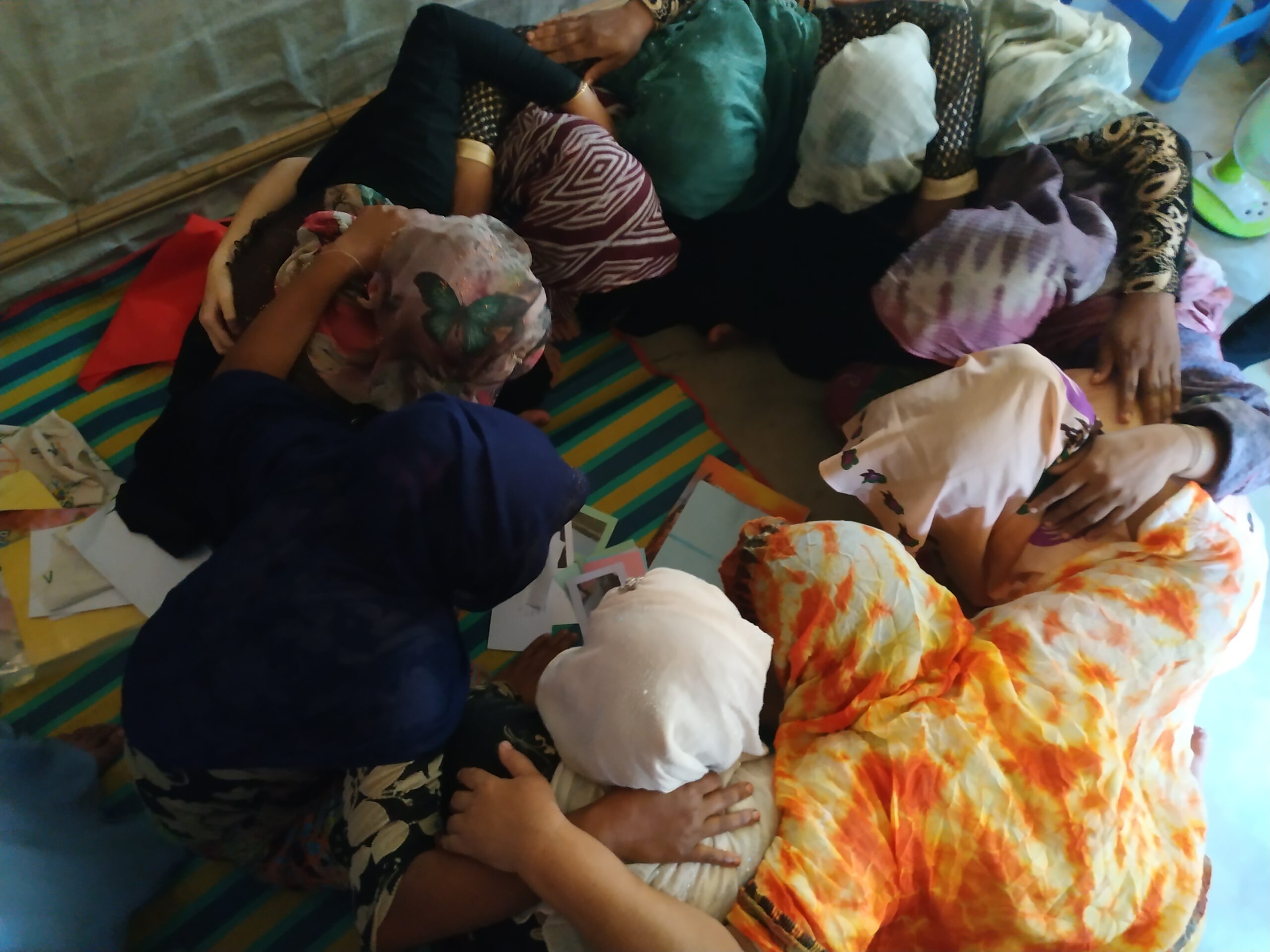According to the UN Refugee Agency (UNHCR), over 740,000 Rohingya refugees have relocated to Bangladesh since August 2017, fleeing persecution in the Rakhine state of Myanmar. The Rohingya – a Muslim ethnic minority with their own language and culture – had been increasingly isolated by state forces for decades. The UNHCR reports that the majority of Rohingya refugees are women and children – with more than 40 percent under the age of 12.

Knowing that in post-conflict settings, documentation is an essential element of accountability and peaceful futures, the Coalition’s Global Initiative for Justice, Truth and Reconciliation (GIJTR) began working in refugee camps in Cox’s Bazar, Bangladesh in early 2019, training local activists to lead documentation efforts. While international agencies may conduct such initiatives, they generally conduct them with local activists working only as interpreters or “fixers”. GIJTR’s experience in Iraq and elsewhere has shown that training documenters from within the community to lead these efforts is a far more effective approach. Unlike international efforts, locally led and coordinated civil society documentation efforts can build trust among survivors and reach communities outside the scope of efforts led by external international organizations. Locally led efforts also remain within their communities long after international agencies leave – paving the way for a sustainable peace.
Given that women and girls are disproportionately affected by conflict, and that in recent months there has been a spike in domestic violence reported in Rohingya camps in Bangladesh, GIJTR’s work in this context has prioritized ensuring that women’s voices are not lost in this process. Many Rohingya women in the camps report there is no legal recourse for threats or harmful acts against them or their children.
Special care has been taken in the GIJTR documentation initiative to identify female leaders within the community and to train a group of them as documenters in preparation for community-led documentation missions. Trainings have been conducted by GIJTR partners, including the Public International Law and Policy Group (PILPG), initially in the camps, and as the COVID-19 crisis grew, through a local partner NGO, in parallel with public health initiatives in the camps.

To further address this challenge of gender-based marginalization, from 2019 to 2022, GIJTR – through its Indonesian partner Asia Justice and Rights (AJAR), conducted workshops with 100 Rohingya women in camps in Cox’s Bazar. The workshops provided space for women to share experiences, challenges and hopes for the future. Women expressed fear about what may happen to their children and were interested to learn more about everyday justice in the camps. Participants also expressed a willingness to share their experiences with the wider community, which some, as leaders of network sub-groups in the camps, are well-equipped to do.
Many women reported being unable to sleep well because of nightmares related to the trauma they have suffered. After attending the workshops, participants described mental and physical improvements in their lives. One woman said, “I used to rarely leave my house. Now I am happy to join these meetings, share stories and experiences.”

In 2020, GIJTR and AJAR collaborated with the Liberation War Museum (LWM), a founding Site of Conscience in Dhaka, Bangladesh, to launch an online exhibition sharing stories from Rohingya women survivors told through embroidered panels (See “Quilt of Memory and Hope: Story of Rohingya Women Survivors”). With 120 individual but connected panels, the “quilts” bring together the women survivors’ stories as one collective voice. Creating these panels was a way for women to speak about their memories of the homes they fled and what they hold dear, as well as their hopes for justice. Preserving and sharing these stories through art projects is an essential element to larger documentation efforts, which might otherwise not have accessed or recorded these experiences.
In 2023 and 2024, ICSC conducted a story sharing program with Rohingya women called “Memorialization through Women Literacy” where illiterate women, with the support of Bangladeshi and Rohingya teachers, learned to read and write to exchange one page of their anonymized life stories with women from other camps. Over 170 women participated in this program to collect their stories and contribute to advocacy and accountability processes. The stories were then shared with more than 2,000 women across the refugee camps.
